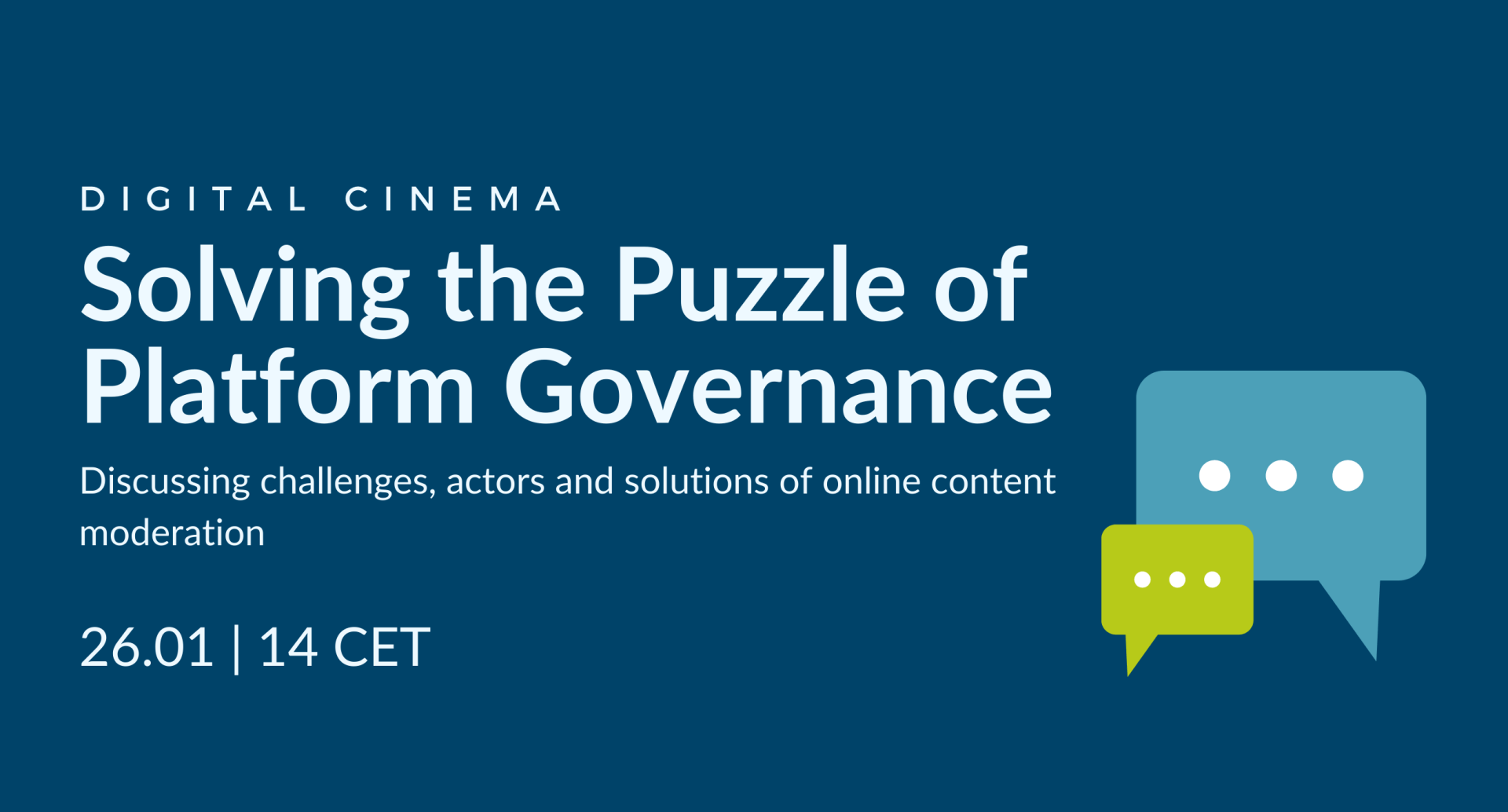ABOUT
From the Rohingya genocide in Myanmar to the recent U.S. Capitol riot, society has witnessed social media being used as amplifiers of hate speech and disinformation unraveling the fabric of democracy worldwide. As a result, both public and private actors are increasingly under pressure to play a more active role in online content moderation inevitably raising other concerns. Social media companies like Facebook, Youtube and Twitter are criticized for their lack of transparency and democratic legitimacy in taking such decisions. On the other hand, governments tend to outsource human rights decisions constitutionally reserved for courts to private actors. Some are tempted to interfere by censoring political dissent. From Facebook’s Oversight Board to Article 19’s Social Media Councils and the EU Commission’s Digital Services Act, we discuss new emerging concepts that seek to address the challenges of online content moderation in an endeavor to put the pieces of platform governance together.
SPEAKERS
Pierre François Docquir is a researcher and expert in the fields of Human Rights Law, Internet and Media Law and Regulation working for ARTICLE 19 as the head of the Media Freedom Programme. He holds a Ph.D. in law from Université Libre de Bruxelles.
Jenny Domino is an associate legal advisor at the International Commission of Jurists steering the organization’s policy engagement with social media companies and shaping organizational response to the human rights impact of technology companies. She holds an LL.M. from Harvard Law School a J.D. from the University of the Philippines and B.A. cum laude from Ateneo de Manila University.
Bence Kertész is a policy officer at DG CONNECT of the European Commission, working in the unit Digital Services and Platforms responsible for the recently adopted Digital Services Act and Digital Markets Act proposals. Previously, he has worked as advisor for information rights at the BBC. He holds university degrees in law and film production/management from the Eötvös Loránd University and the University of Drama, Film and Television in Budapest, respectively.
Abhilash Nair is senior lecturer at Aston Law School. His principal area of research is within the area of internet law, specifically the regulation of illegal content and internet pornography. Abhilash is secretary of the British and Irish Law, Education and Technology Association and a member of the Evidence Working Group of the UK Council for Internet Safety (UKCIS) as well as of the UN-IGF Dynamic Coalition on Child Online Safety.
SHARE
Read More


Watch Our Episodes





